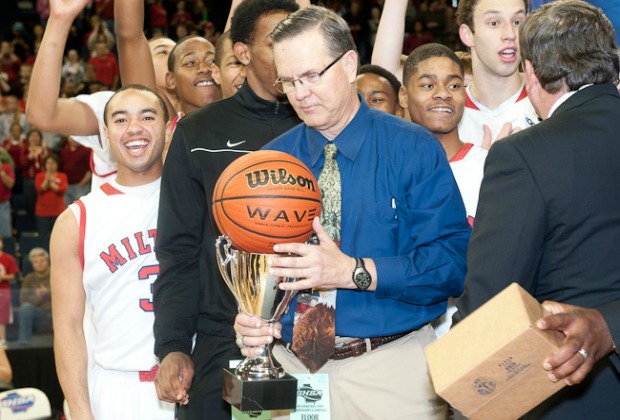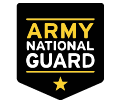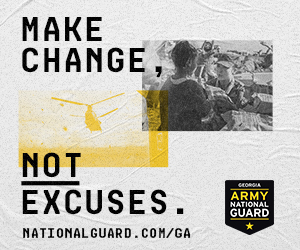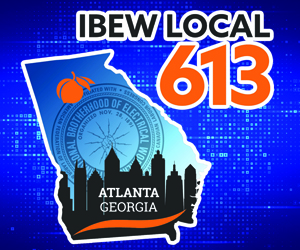
In wake of the investigation at Milton that resulted in the resignation of boys basketball coach David Boyd, the phrase “undue influence” has come to the forefront of many conversations throughout the state. But what does it truly mean? What type of influence is considered “undue”?
According to GHSA by-law 1.70, the term undue influence means “the use of influence by any person connected directly or indirectly with a GHSA school to induce a student of any age to transfer from one school to another, or to enter the ninth grade at a member school for athletic or literary competition purposes, whether or not the school presently attended by the student is a member of the GHSA.”
Milton was scheduled to have four transfers to their basketball programs this year, all in the Class of 2014. One of them, DaQuain Watts, attended North Springs last season, while the other three are from well out of town. Isaiah Manderson of Westside (Augusta) is the only other transfer from in state. The other two, Johnnie Vassar, of La Porte, Ind., and Idris Taqqee of Ashburnham, Mass., are from completely different parts of the country.
Of course, if these four each moved to the Milton school district without any “undue influence,” there is no issue. But Milton and Fulton County chose to investigate the basketball program for a reason, causing Boyd to resign. And after reading the GHSA by-laws on undue influence and recruiting, it is easy to see why.
Undue influence can be any contact initiated by coaches, boosters or other school personnel. “Boosters” is the tricky part of that as a booster is defined by the GHSA as pretty much anyone with any sort of connection to a school at all. Here is the exact definition as given by the GHSA: members of the school’s Booster Club; alumni; parents; guardians; or relatives of a student or former student; financial donors; or donors of time and effort.
With these rules in mind, someone could just be joking around with an athlete at a rival school and unintentionally commit a violation.
Obviously, violations like that would be considered secondary and not met with any real punishment, but any other type of “booster” calling players or talking with players about transferring in is a serious transgression.
Transfers are another sensitive area of the rulebook at this point. GHSA by-laws on transfers are long and tedious to read. But the main one states that in a “bona fide move,” a student “moved simultaneously with the entire parental unit or persons he/she resided with at the former school, and the student and parent(s) or persons residing with the student live in the service area of the new school.”
There are other ways to transfer, but in most cases, this is typically the way they occur legally. But in the wake of a scandal like at Milton, rumors have been floating to the surface about rumored transgressions in other schools. Use of false addresses, forged paperwork and other ways of dodging the rules are being alleged in certain cases.
The GHSA had no comment when contacted for this story.








































































